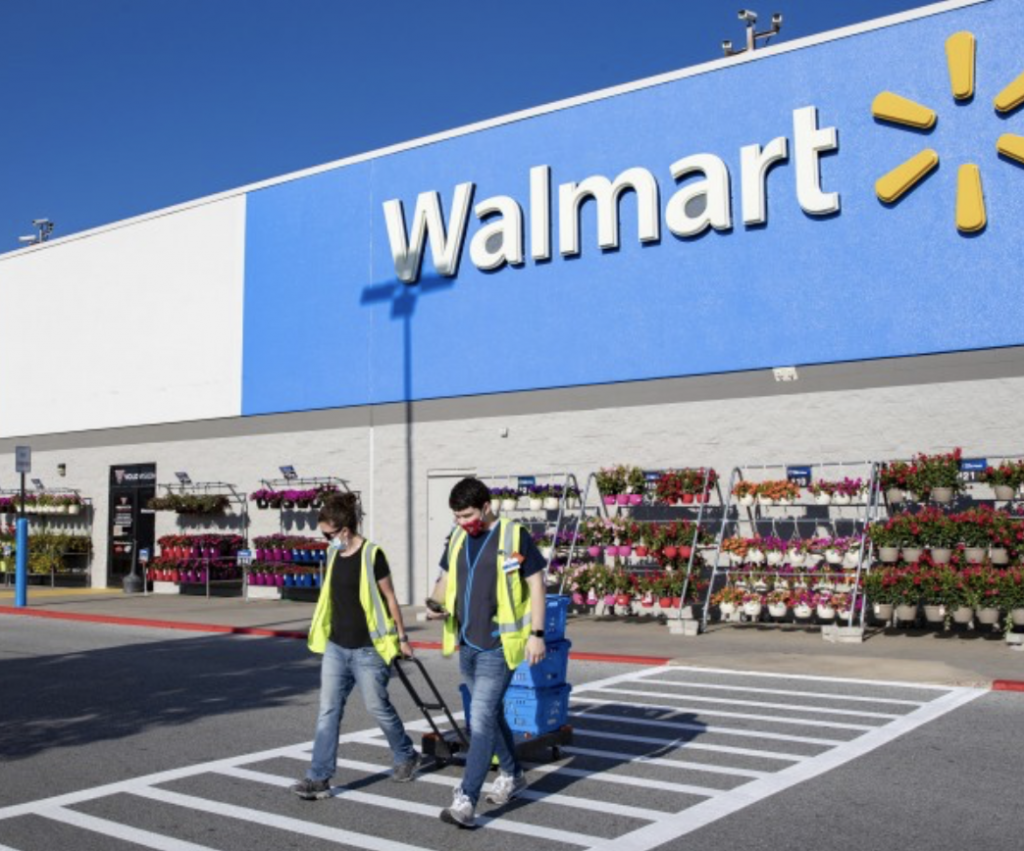The Unexpected Decision Walmart Made, And What It Means For You
Walmart, who normally doesn't hesitate to go head to head with Amazon, made a super surprising sales decision.

Walmart is not shy about going head to head with Amazon. The retailer has been very vocal about its intention to compete against the e-commerce giant in the online space. In years past, Walmart has also run its own blowout sales event to coincide with Amazon’s annual Prime Day. However, this year Walmart has decided against holding a competing sales event.
It seems odd that Walmart, being that it is so focused on offering consistent and direct competition to Amazon, would forgo hosting a sales event in service of that. But it actually makes sense that the retailer would opt out of such an event this year. Why? The simple answer is inflation. The more thorough reason is that inflation has caused Walmart’s bottom line to take a hit. It has also caused the retail behemoth to have an abundance of overstock. Consequently, in order to move merchandise Walmart has been forced to put many items on sale at a steep discount. Thus hosting a big blowout sales event would be somewhat redundant at present.
It’s not just Walmart that has been forced to heavily discount a ton of inventory in an attempt to offload the excess. Target, Best Buy, Macy’s, Gap, and others have all been having consistent sales. “You go in stores now, it’s almost like Prime Day in some of these categories,” observed Rupesh Parikh, who works as a senior analyst for Oppenheimer & Co. In contrast to Walmart, however, some of these stores have decided to go ahead with their respective Prime Day-competing sales events. Target is hosting its three-day-long Deals Days event starting Monday, July 11. Both Best Buy and Macy’s are kicking their sales off with Black Friday in July. Prime Day is a two-day event to be held on Tuesday, July 12, and Wednesday, July 13.
Amazon’s Prime Day events are typically among the most profitable for the company. However, given the unique circumstances currently in play within the retail landscape due to inflation, it is unclear if it will be the runaway hit that it usually is. This is especially true considering that Prime Day’s format causes customers to have to wait for the best deals. Under normal circumstances, this builds anticipation and drives sales by boosting customer excitement. But since everything is on sale just about everywhere right now, customers might not see the value in waiting when they can likely track down the same item for the same price elsewhere.
Lastly, depending on how Prime Day and the rest of the summer sales events play out, it could serve to foreshadow the way the economy is headed in the next couple of months. For instance, if stores do well it could signal that customer resiliency has remained high despite challenges. However, the inverse of that where customers spend less is far more foreboding and could be an indication that a potential recession is looming ever closer with each passing day. Ultimately, the verdict will be revealed after the sales figures start pouring in.











